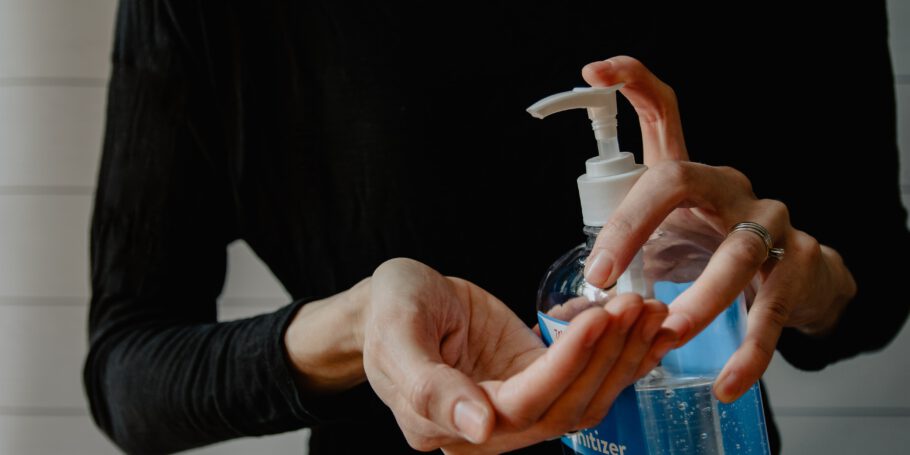Alcohol for disinfection as the tax-deductible cost
Areas of interests / 27 April 2020

In the existing situation associated with the emergence of the SARS-CoV-2 coronavirus threat, many companies equip their offices with alcohol (spirit) for disinfection. This is primarily due to non-availability of other disinfectants. In the context of the foregoing, a question may be asked: can the taxpayer treat such expenses as tax deductible costs?
Safety in the workplace is crucial
Regulations of the Labor Code (in particular Article 207 § 2 and Article 304 § 1) provide that employers are obliged to protect health and life of employees and ensure safe and hygienic working conditions. Purchase of alcohol (spirit) for the purpose of disinfecting hands or office space in order to limit the spread of SARS-CoV-2 coronavirus undoubtedly meets these conditions. Expenses made for this purpose mean in fact compliance with basic obligations of the employer in terms of protecting employees against coronavirus infection and its spread in the workplace. Thus, just like the purchase of hygiene products (soaps, towels), a company may charge the purchase of alcohol (spirit) to tax deductible costs.
Purchase of alcohol is not always for representative purposes
A claim that the purchase of alcohol for disinfection cannot constitute a tax-deductible cost will not be justified in this case. It is true that expenses for the purchase of alcohol are excluded from tax-deductible costs, however only in the context of performing a representative function. Pursuant to Article 16 (1) (28) of the CIT Act, representation costs, in particular incurred for catering services, the purchase of food and beverages, including alcoholic beverages, shall not be included in tax-deductible costs. However, it is difficult to talk about a cost for representative purposes when buying alcohol, the function of which is to disinfect hands by employees or to disinfect office space in the era of SARS-CoV-2. Therefore, justifiability of expenses incurred for the purchase of alcohol for disinfection purposes (just like other hygienic measures) should not raise objections in the event of any tax audit.
Expenses incurred for the purchase of alcohol for disinfection purposes should be charged to costs other than directly related to revenues. In consequence, they will be deductible at the moment of incurring them (indirect costs). Importantly, the taxpayer (company) will also be able to deduct VAT on such purchase and a respective invoice will be the basis for the deduction.
The situation of a single-person business is quite different
The situation is different in the case of a single-person business, i.e. an entity who does not employ employees and conducts business, say, in his or her own flat. Such person will not be allowed to charge expenses incurred for the purchase of alcohol for disinfection purposes (as well as other hygiene products) to tax-deductible costs.
This is due to the fact that tax authorities do not accept charging personal expenses to tax-deductible costs. Personal expenses mean expenses incurred for own needs of a businessperson and not related to the conducted business activity. The easiest way to explain this is that the purchase of hygiene products by a single-person business means fulfillment of his or her personal needs related to health protection and he or she would have also made the same purchase without being a businessperson (as a natural person). For this reason, expenses incurred for the purchase of hygiene products by a single-person business will not be charged to tax-deductible costs. Therefore, the single-person business will not deduct VAT on such purchase.
Unusual circumstances, unusual approach
We have all found ourselves in undoubtedly incomparable circumstances. Currently, special obligations are imposed on employers who are obliged to ensure safety of their employees. In such a situation, even the tax authorities, which until now did not allow charging of alcohol purchases to tax-deductible costs, must change their approach. Unusual circumstances require unusual solutions.
Monika Lewińska, a lawyer at GWW, is the author of the article.
Author

Monika Lewińska
prawnik
Powiązane wpisy
COVID-19 and the construction industry – force majeure in FIDIC contracts
COVID-19 and the construction industry – force majeure in FIDIC contracts
Tax credit for donors – zero VAT rate for entities providing personal protective equipment
Tax credit for donors – zero VAT rate for entities providing personal protective equipmentTax residency during lockdown
Tax residency during lockdown
Relief for residential purposes in Poland – how does it work from January 1, 2019?
Relief for residential purposes in Poland – how does it work from January 1, 2019?Obawiasz się,
że ominą Cię
najważniejsze zmiany
w prawie?


